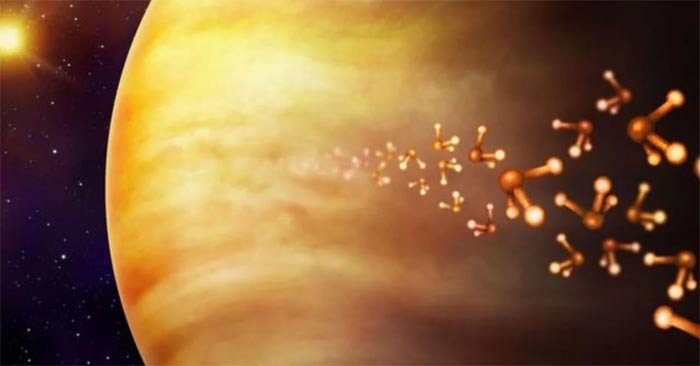Alien Hunting Mission Really Is Taking Place on Venus
The presence of clear biological signs on Venus has prompted researchers in the UK to search for bacterial life in the planet's clouds.

A UK mission is aiming to determine once and for all whether life exists on Venus . The mission is expected to send a probe to the planet to search for microbial life, not on the surface of course, but in Venus' clouds .
Over the past half-decade, scientists have detected the presence of phosphine and ammonia — two potential signs of biological activity — in Venus' clouds. On Earth, both gases are produced only by biological activity and industrial processes. Scientists are still uncertain about their origins on Venus.
With its thick, toxic atmosphere, scorching surface temperatures and intense surface pressures, life here seems unthinkable. However, the team of researchers suggests that bacteria – which can thrive in Earth's hottest, most toxic environments – could exist on Venus and produce these gases.
' Our latest data has found further evidence of ammonia on Venus, with the possibility of it existing in potentially habitable parts of the planet's clouds, ' said Jane Greaves, an astronomer at Cardiff University. ' There are currently no known chemical processes to produce ammonia or phosphine, so the only way to know for sure what causes them is to go there .'
At this year's Royal Astronomical Society National Astronomy Meeting, researchers from Cardiff University presented plans to search for and map phosphine, ammonia and other hydrogen-rich gases that could indicate the presence of microbial life on Earth's twin planet.
The mission, called the Venus Explorer for Reduced Vapours in the Environment (VERVE) , will send a CubeSat-sized probe aboard the European Space Agency's EnVision — a larger mission designed to explore the surface and interior of Venus, scheduled to launch in 2031. VERVE will detach upon arrival and conduct an independent atmospheric survey.
Researchers first detected phosphine in Venus' clouds in 2020. However, the discovery was controversial as subsequent studies did not produce similar results.
Although the surface temperature of Venus reaches around 450 degrees Celsius, conditions are much more pleasant at an altitude of about 50 kilometers (31 miles) above the surface, where temperatures range from 30 degrees Celsius to 70 degrees Celsius. Researchers believe that extremophiles – such as those found in Earth's hydrothermal vents and deep-sea trenches – could survive in these conditions.